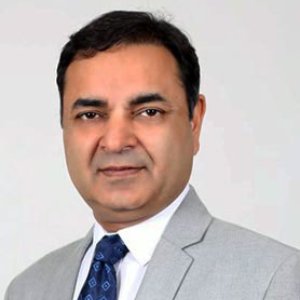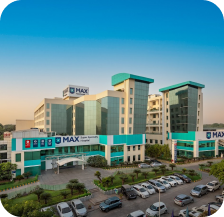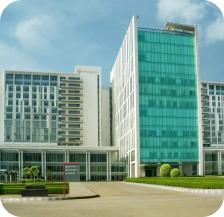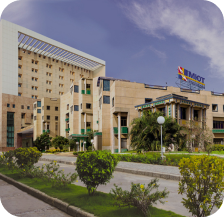VP Shunt Surgery Cost in India
The cost of VP (Ventriculoperitoneal) Shunt Surgery in India ranges from $4,000 to $6,000 USD, depending on the hospital, type of shunt used, and the patient’s medical condition. The procedure is performed to drain excess cerebrospinal fluid (CSF) from the brain to the abdominal cavity, effectively treating hydrocephalus and related pressure disorders.
At Medserg, patients are connected with India’s top neurosurgeons and advanced neuro-care hospitals offering affordable, safe, and high-success-rate shunt surgeries. From diagnosis to rehabilitation, Medserg ensures a smooth medical journey with full international assistance.
Cost Range of VP Shunt Surgery in India

Minimum Cost
USD 4000

Maximum Cost
USD 6000

Total Stay
60 Days

Hospital Stay
15 Days
Get Cost Estimate
Process of VP Shunt Surgery in India

SHARE YOUR CONTACT DETAILS

RECEIVE COST ESTIMATE IN 48 HOURS

GET RECEIVED BY OUR TEAM

GET TREATED AND FLY BACK
Inclusion & Exclusion of the Treatment
Inclusion of the Treatment
- Neurosurgeon consultation and pre-operative assessment
- MRI/CT scan and diagnostic investigations
- Surgery charges and anesthesia fees
- Hospital stay with ICU (if required)
- VP shunt implant and consumables
Exclusion of the Treatment
- International and domestic airfare
- Accommodation after hospital discharge
- Expenses for other unrelated medical treatments
- Personal expenses such as meals, travel, or companion stay
Factors affecting cost of VP Shunt Surgery in India
- Type of Shunt Used – The cost largely depends on whether a programmable or fixed-pressure shunt system is chosen for hydrocephalus management.
- Patient’s Medical Condition – Severe or recurrent hydrocephalus cases requiring additional neurological procedures or ICU monitoring increase the overall expense.
- Surgeon’s Expertise and Experience – Highly skilled neurosurgeons with advanced micro-neurosurgery and pediatric hydrocephalus experience may charge premium fees.
- Hospital Category and Facilities – Multi-specialty or JCI/NABH-accredited hospitals with neuro-ICUs and 24x7 imaging command slightly higher treatment costs.
- Duration of Hospital Stay – Longer hospital admissions due to complications, infection control, or extended observation can increase total charges.
- Type of Anesthesia and Equipment Used – Use of modern anesthesia techniques and imported shunt implants adds to the surgery’s total cost.

Types of VP Shunt Surgery in India
Different shunt systems are used depending on patient age, pressure level, and hydrocephalus severity.
| Type of VP Shunt Surgery | Description | Average Cost (USD) |
|---|---|---|
| Fixed-Pressure VP Shunt | A standard valve system that drains CSF at a preset rate, suitable for stable hydrocephalus cases. | $3,000 – $4,000 |
| Programmable VP Shunt | Allows surgeons to adjust pressure settings externally without surgery for better CSF control. | $4,500 – $6,000 |
| Antisiphon VP Shunt | Equipped with a mechanism to prevent over-drainage when the patient changes posture. | $3,500 – $5,000 |
| Endoscopic-Assisted VP Shunt | Uses minimally invasive neuroendoscopy for precise shunt placement and reduced complications. | $4,000 – $5,500 |
Top Hospitals for VP Shunt Surgery in India
Top Doctors for VP Shunt Surgery in India

Dr. Sandeep Vaishya
Executive Director & HOD Neuro Surgery

Dr. Aditya Gupta
Director of Neurosurgery | Artemis Hopsital

Dr. Sudheer Tyagi
Senior Consultant – Neurosurgery - Indraprastha Apollo Hospitals

Dr. V S MEHTA
Chairman - NEUROSURGERY Paras Healthcare Gurgaon
Get Cost Estimate
Why Choose Medserg for the VP Shunt Surgery in India?
- Expert Neurosurgeons – Access to India’s leading neurosurgeons with extensive experience in hydrocephalus management.
- State-of-the-Art Hospitals – Partnered with top-tier hospitals equipped with advanced neuro-ICUs and MRI facilities.
- Affordable Packages – Transparent all-inclusive packages starting from $3,000 USD.
- Personalized Care Support – Dedicated case managers for each international patient ensuring smooth coordination.
- Post-Surgery Rehabilitation – Continued follow-up care, physiotherapy, and shunt function monitoring provided via Medserg.
- Comprehensive Assistance – Includes visa support, airport pickup, translation, and travel arrangements.

Diagnostic Tests for VP Shunt Surgery in India
Accurate imaging and assessments are required to confirm hydrocephalus and determine the need for shunt placement.
| Diagnostic Test | Description | Average Cost (USD) |
|---|---|---|
| MRI Brain with Contrast | Provides detailed visualization of ventricles and fluid accumulation in the brain. | $150 – $250 |
| CT Scan of Brain | Detects ventricular dilation, shunt blockage, or malfunction. | $100 – $200 |
| CSF Pressure Measurement (Lumbar Puncture) | Measures cerebrospinal fluid pressure to diagnose hydrocephalus. | $70 – $150 |
| X-Ray Shunt Series | Checks the positioning and integrity of the VP shunt post-surgery. | $50 – $100 |
Methods for Obtaining a Kidney
1. Submit Medical Reports – Share MRI, CT, or diagnostic reports with Medserg for expert evaluation.
2. Get Medical Opinion – Receive a detailed treatment plan and cost breakdown from top neurosurgeons.
3. Choose Hospital & Confirm Schedule – Select from India’s best neuro-specialty hospitals with advanced facilities.
4. Plan Travel & Visa Assistance – Medserg helps with visa invitation letters, airport pickup, and lodging arrangements.
5. Undergo Surgery & Recovery – Complete surgery under skilled specialists with 24/7 post-operative monitoring and rehabilitation support.
Frequently Asked Questions
VP Shunt Surgery involves placing a thin tube (shunt) to drain excess cerebrospinal fluid from the brain to the abdomen.
The cost ranges from $3,000 to $6,000 USD, depending on hospital, surgeon expertise, and type of shunt used.
The surgery usually takes 1 to 2 hours, and most patients stay in the hospital for about 3 to 5 days.
Most patients recover within 2 to 3 weeks, though full recovery and monitoring continue for several months.
Many shunts last 10 years or more, but periodic checks are needed to ensure proper function and avoid blockages.
Potential risks include infection, blockage, or over-drainage, but these are rare when performed by skilled surgeons.
























